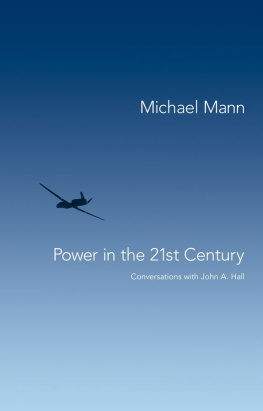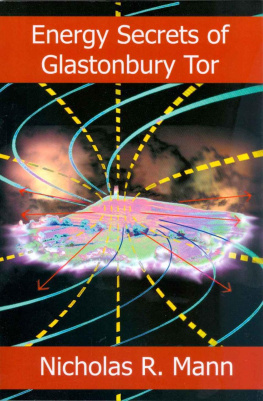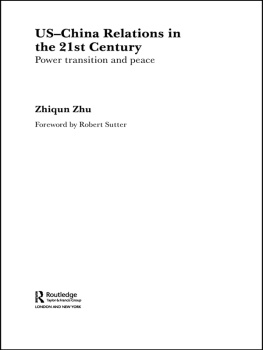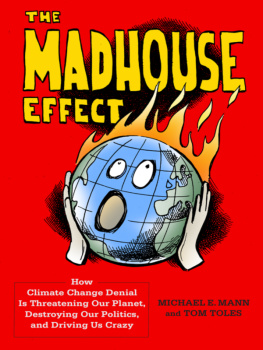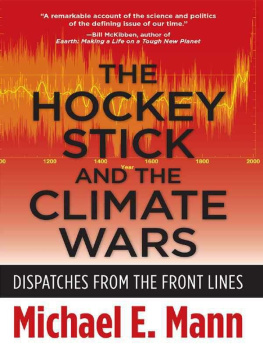Michael Mann - Power in the 21st Century
Here you can read online Michael Mann - Power in the 21st Century full text of the book (entire story) in english for free. Download pdf and epub, get meaning, cover and reviews about this ebook. year: 2013, publisher: Wiley, genre: Politics. Description of the work, (preface) as well as reviews are available. Best literature library LitArk.com created for fans of good reading and offers a wide selection of genres:
Romance novel
Science fiction
Adventure
Detective
Science
History
Home and family
Prose
Art
Politics
Computer
Non-fiction
Religion
Business
Children
Humor
Choose a favorite category and find really read worthwhile books. Enjoy immersion in the world of imagination, feel the emotions of the characters or learn something new for yourself, make an fascinating discovery.
- Book:Power in the 21st Century
- Author:
- Publisher:Wiley
- Genre:
- Year:2013
- Rating:4 / 5
- Favourites:Add to favourites
- Your mark:
- 80
- 1
- 2
- 3
- 4
- 5
Power in the 21st Century: summary, description and annotation
We offer to read an annotation, description, summary or preface (depends on what the author of the book "Power in the 21st Century" wrote himself). If you haven't found the necessary information about the book — write in the comments, we will try to find it.
Power in the 21st Century — read online for free the complete book (whole text) full work
Below is the text of the book, divided by pages. System saving the place of the last page read, allows you to conveniently read the book "Power in the 21st Century" online for free, without having to search again every time where you left off. Put a bookmark, and you can go to the page where you finished reading at any time.
Font size:
Interval:
Bookmark:
Table of Contents

Copyright Michael Mann and John A. Hall 2011
The right of Michael Mann and John A. Hall to be identified as Authors of this Work has been asserted in accordance with the UK Copyright, Designs and Patents Act 1988.
First published in 2011 by Polity Press
Polity Press
65 Bridge Street
Cambridge CB2 1UR, UK
Polity Press
350 Main Street
Malden, MA 02148, USA
All rights reserved. Except for the quotation of short passages for the purpose of criticism and review, no part of this publication may be reproduced, stored in a retrieval system, or transmitted, in any form or by any means, electronic, mechanical, photocopying, recording or otherwise, without the prior permission of the publisher.
ISBN-13: 978-0-7456-5322-8
ISBN-13: 978-0-7456-5323-5(pb)
ISBN-13: 978-0-7456-3756-3(Single-user ebook)
ISBN-13: 978-0-7456-3754-9(Multi-user ebook)
A catalogue record for this book is available from the British Library.
The publisher has used its best endeavors to ensure that the URLs for external websites referred to in this book are correct and active at the time of going to press. However, the publisher has no responsibility for the websites and can make no guarantee that a site will remain live or that the content is or will remain appropriate.
Every effort has been made to trace all copyright holders, but if any have been inadvertently overlooked the publisher will be pleased to include any necessary credits in any subsequent reprint or edition.
For further information on Polity, visit our website: www.politybooks.com
Introduction
John A. Hall
Michael Mann has always seemed to me to be our generations Max Weber. The most obvious way in which this is so is that of his central theoretical claim: namely, that it is necessary to take into account distinct sources of social power in order to understand both the historical record and the contours of our own world. Just as important is the fantastic historical range of both thinkers, allied to staggering abilities to absorb and condense huge amounts of empirical evidence. Of course, there are subtle differences, some of which Mann remarks upon late in the following text. Webers concern with economic, political, and ideological forms of power is developed by Mann into a fourfold scheme that adds to the celebrated trinity an insistence on the autonomy of military power. Then there is a difference in perspective. The extended scholarship that Weber devoted to different civilizations is not fully matched by Mann, despite striking forays made in that direction. But the most crucial difference is normative. It is impossible to overstate the influence of Nietzsche on Weber, leading as it did to his concern with disenchantmentand at times to a politics that had little time for liberal democracy, favoring as it did nationalism together with the need for a charismatic leader to shake society out of the malaise of consumerist dullness. In contrast, Mann is a committed social democrat, as this volume makes clearer than ever before. This reinforces the sense that he is indeed a Max Weber for our times. He is as concerned with our current sense of history, but grounds his work in values that are closer to our own.
Though Manns work is very well known, it may be useful to recall something of the grandeur of his attempt at social understanding. He has told us that he began his attempt to develop the tools to understand the historical record as a whole in 1972, imagining at that time that he could manage this in short order and within a single volume. He was incapable of doing this, to our very great benefit! We have instead been offered large books crammed with detail on key turning points, all of them concerned both to advance sociological theory and to help social understanding.
The Sources of Social Power, Volume One: A History of Power from the Beginning to 1760 AD is a particularly exciting volume, and not just because it introduced a new theoretical scheme. For one thing, the vast historical range covered meant that theoretical claims stood out from historical detail. For another, the treatment of the migration of the leading edge of power from the Middle East to northwest Europe had great narrative thrust, taking the reader along in a dazzling excursus into world historical development. There were great incidental pleasures: an account of the way in which agriculture became prominent due to the early farmers caging in the great river valleys; analysis of early empires, and in particular a sophisticated description of the rise and fall of Rome; the brilliant foray, based on an original concept of ideological power, into the emergence of the world religions; and an explanation for the rise to world power of the warring states of northwest Europe.
That first volume of Sources made his reputation, and saw him move from the London School of Economics to the University of California, where he still works. In contrast, the second volume, The Rise of Classes and Nation-States, 17601914 , received rather less attention. The book is denser, filled with a mass of empirical detail; perhaps this demanded too much of readers unable to quickly grasp the varied originalities therein. The book continues to make use of his conceptualization of the four sources of power so as to trace again the leading edge of power, fundamentally through describing the interactions of the Great Powers of northwest Europe in the long nineteenth century. What is particularly striking about the volume are set pieces on key factors of social lifemaking the relative neglect shown to the volume astonishing, at least in my opinion. The chapters devoted to the modern state are the best available, an astonishing tour de force. Just as important is a careful explanation of the nature of class action, stressing the way in which social movements gain their character from the nature of the states with which they interact. Throughout the volume there is a subtle view of nationalism, albeit this is less clearly articulated than it is in key passages of the conversations that follow. And of course, the final chapter describes the moment at which Europeans began to lose their dominance in world historical terms. A case can be made that geopolitical competition between states inside the European sphere had led to progress overallto the rationalization of states and the spread of economic and political innovation. But this very engine brought disaster once war was allied to industrial might.
Events interfere with academic plans as much as political programs. In the year that this second volume of Sources appeared Mann was challenged, at a Prague conference on nationalism organized by Ernest Gellner, about the ethnic cleansing then taking place in the Balkans. The result of this challenge was a huge diversion from the immediate completion of Sources , resulting in a pair of volumes Fascists and The Dark Side of Democracy: Explaining Ethnic Cleansing explaining the horrors of the twentieth century. These companion volumes certainly demonstrate the comparative historical sociological skills of a master of the genre. They were clearly hard to write. For the most impressive characteristic of both is the refusal to simply treat, or only treat, the perpetrators of horror as evil. Rather, sense had to be made of the actors involved; the rationality of their actions had to be appreciated and understood. This approach landed Mann in a good deal of trouble, particularly in the eyes of David Laitin, when speaking of the dark side of democracy. It may be that the arresting nature of Manns title was incautious given that liberal democracy has a relatively clean record as far as ethnic cleansing is concerned. But the title still seems to me brave and significant, forcing us to face the fact that normal people can act in repulsive waysthat ethnic cleansing can be popular and not, as is so often maintained, something engineered by manipulative political entrepreneurs.
Font size:
Interval:
Bookmark:
Similar books «Power in the 21st Century»
Look at similar books to Power in the 21st Century. We have selected literature similar in name and meaning in the hope of providing readers with more options to find new, interesting, not yet read works.
Discussion, reviews of the book Power in the 21st Century and just readers' own opinions. Leave your comments, write what you think about the work, its meaning or the main characters. Specify what exactly you liked and what you didn't like, and why you think so.

